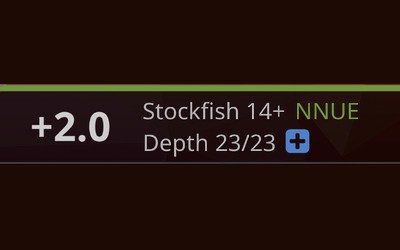
Photo by Aron Visuals on Unsplash
Basic Time Management Reference
Basic tools to help you get a handle on your time management.For a given time control, how much time should you spend thinking before you make a move? It's a question that comes up a lot in the lower rating bands of the Dojo Training Program. Time management is complicated because some moves are easy and others require deep thinking. Over time, you will get a sense of how you prefer to manage your time for a particular time control. The purpose of this reference is to give you a starting point for basic time management so that you can be aware of the time you're taking and avoid blitzing out your moves or consistently losing on time.
Reference tables
- Lichess 40-move game
- Lichess 60-move game
- Chess.com 40-move game
- Chess.com 60-move game
- Dojo Training Program 40-move game
- Dojo Training Program 60-move game
- Lichess Time Controls (good for checking equivalencies)
- Formulas so you can do your own calculations
Basic time management
How many moves do I expect the game to take?
Do you expect the game to go 40 moves or do you expect it to go 60? I've seen different estimates on the average number of moves per game that range from 25 to 42. The average means that half the games take more moves, but there will be some moves that you make fairly quickly.
Until you get comfortable with a particular time control, I'd suggest using the 40-move numbers below for games with longer time controls or significant increments. I'd suggest using the 60-move numbers for games with shorter time controls or small or no increment. The tradition in classical-length chess is to assume 40 moves, and both Lichess and Chess.com use 40 moves to determine how to classify their time controls.
How much time should I set aside for the game?
The Total time will tell you how long a game could possibly last for the time control, so that you can plan accordingly.
How much time should I take on each move?
The average Time per move will give you an idea of how long to take on each move. There will be times where you can move more quickly and times where you will really want to consider the position. If you are playing all your moves faster than the average, you are likely not using your time to your advantage. If you are playing your moves slower than the average, you will likely run into time pressure or even run out of time.
How much time should I have left on the clock?
It's hard to keep track of how much time you've spent on individual moves, so you can use the clock times in the Move columns to get an idea of how fast or slow you're going compared to the average time. The clock times are based on the main time control, so they are really easy to calculate in your head.
How to read the tables
The columns are Type or FIDE rating, Time control, Total time, Time per move, Move 10, Move 20,....
- The Type column for Lichess and Chess.com shows how they classify the time control.
- The FIDE rating is the estimated rating for Dojo Training Program members. The Dojo provides a conversion chart. Program members play and analyze a significant number of games at the prescribed time control, or longer, in order to progress in the program.
- The Time control is the starting number of minutes plus the number of seconds added for each move made. The time controls shown are the presets on Lichess and Chess.com and the prescribed time controls for the Dojo Training Program.
- The Total time is the maximum amount of time overall that a 40- or 60-move game would take for this time control. For games without increment (+0), the time shown is the longest possible game. Games with increment could go longer.
- The Time per move is the average time you have to make each move, rounded down for the really fast time controls.
- Move 10, Move 20, etc. indicate the time on your clock at that move if you are taking the average time per move. If there is an increment and you have already moved, subtract the increment from your clock.
Lichess
40-move game
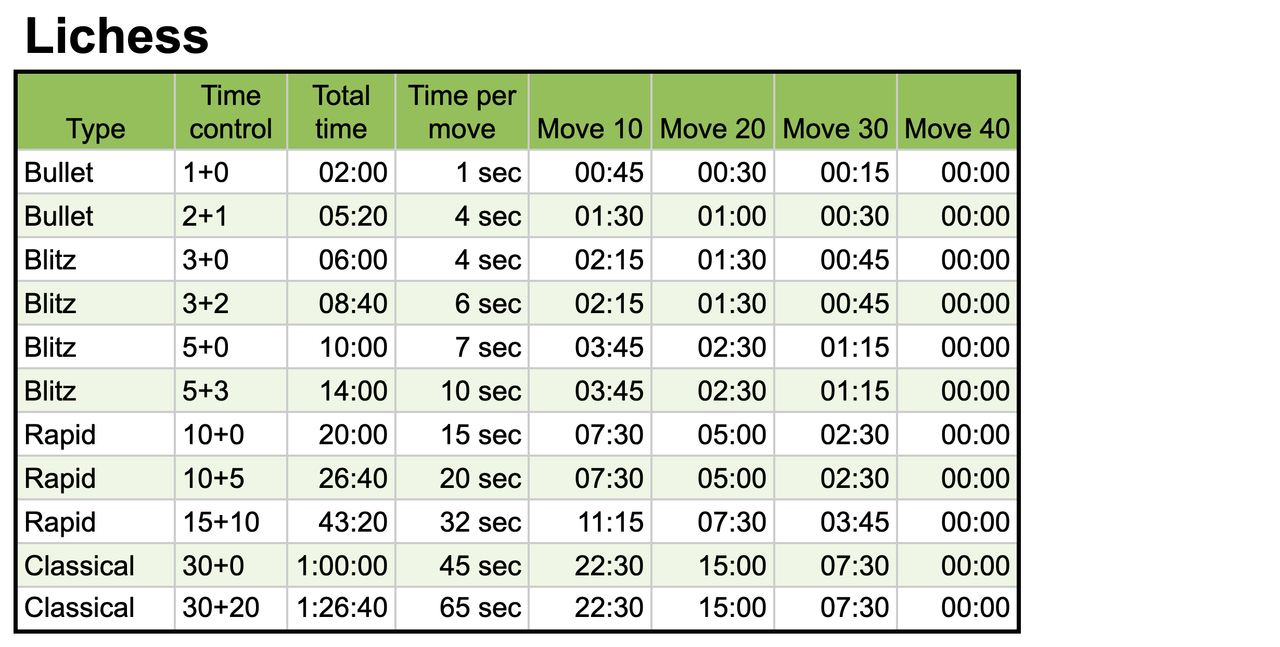
60-move game
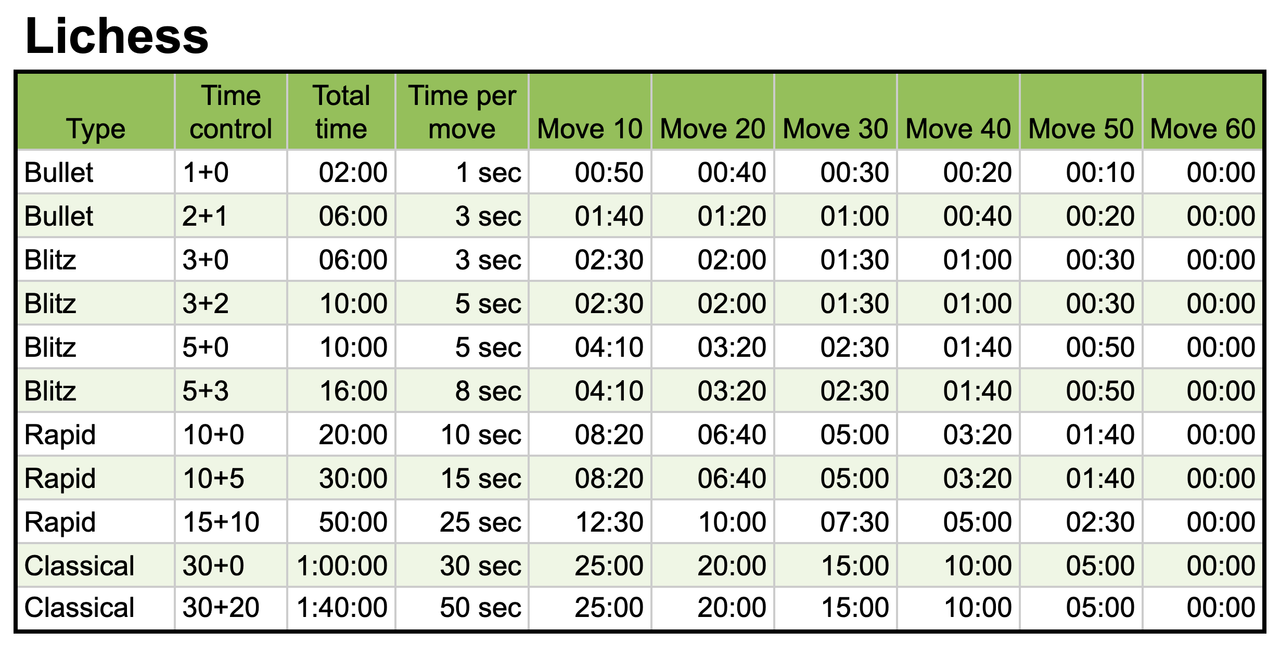
Chess.com
40-move game
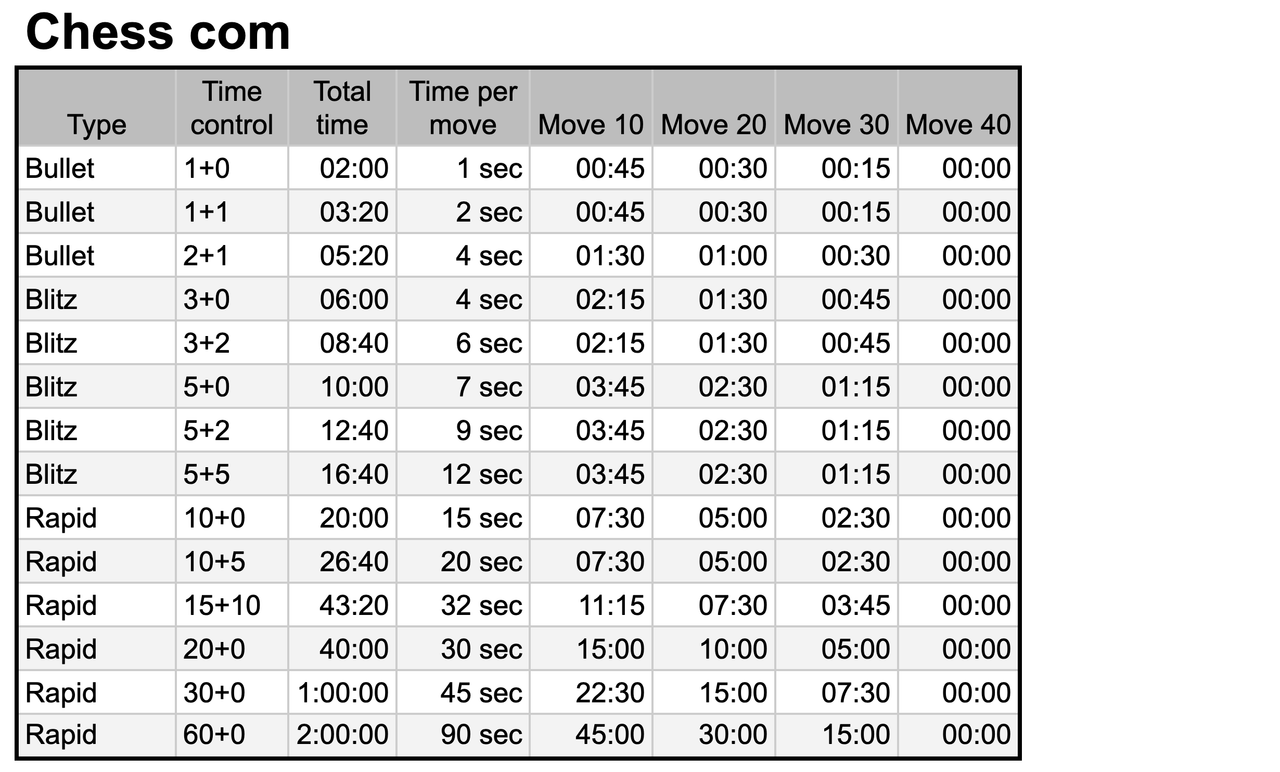
60-move game
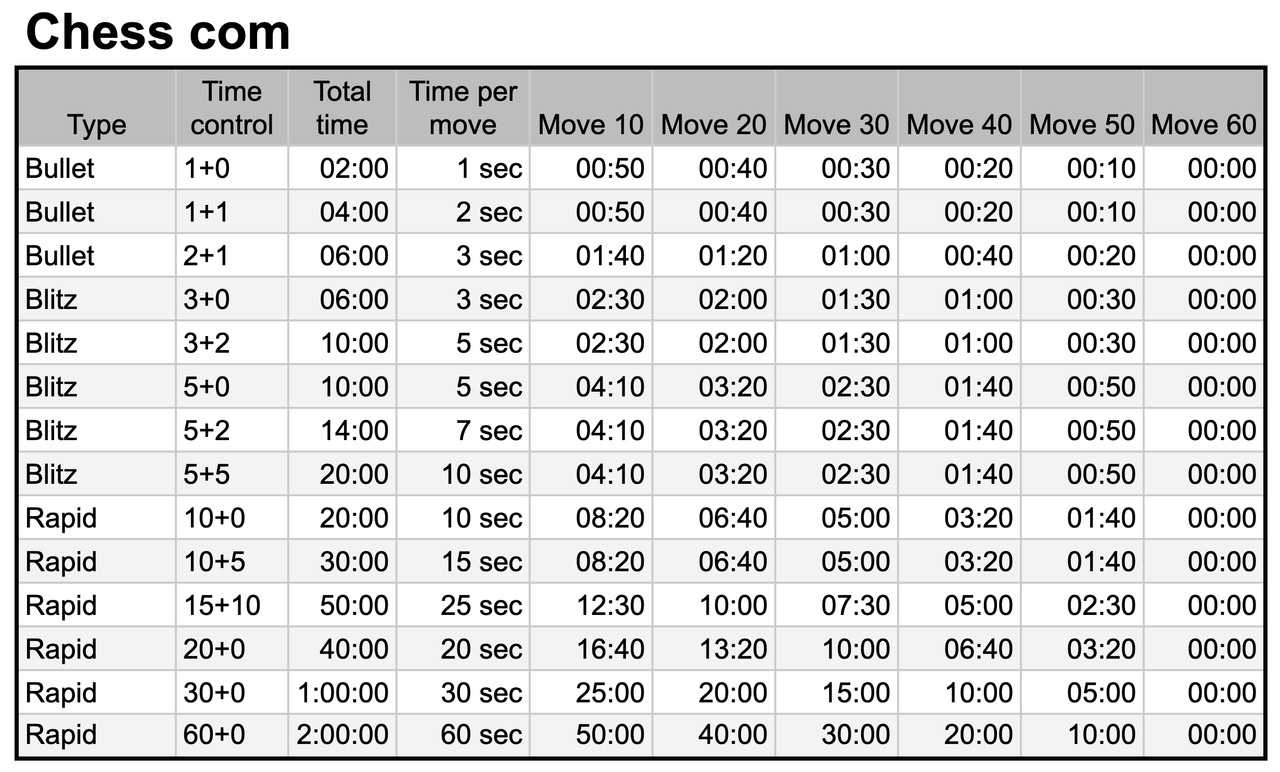
Dojo Training Program
40-move game

60-move game

Lichess Time Controls
Is it blitz, rapid, or classical? Is 1+60 equivalent to 60+1? (No.) Main time * 60 + Increment * 40 with the results shown in seconds.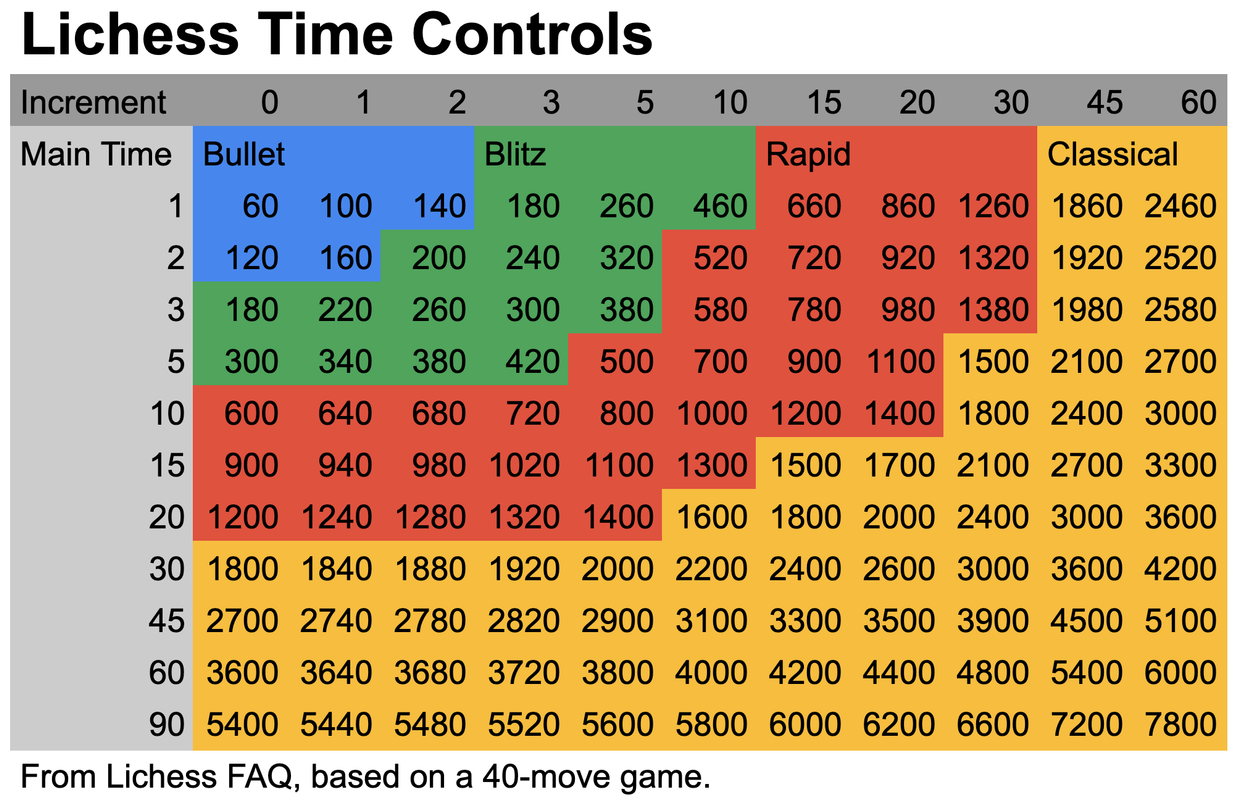
Formulas
If you want to recreate these tables, here are the formulas. Let T be the main time control and I be the increment (T+I) for an M-move game.
- Total time (secs) = 2*(T*60 + I*M)
- Average time per move (secs) = (T*60 +I*M)/M
- Time at move m (secs) = T*60*(M-m)/M
Note for 60 moves, total time is 2*(T+I) minutes and average time per move is just T+I seconds.
Gallery of the tables in this post.
Photo by Aron Visuals on Unsplash




